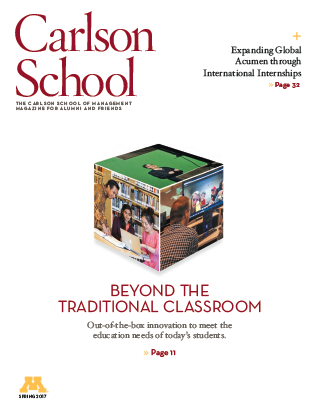
CEO Power vs. Audit Committee Effectiveness
Tuesday, June 20, 2017
By its nature, an independent audit committee should be exactly as its name suggests— independent. These committees play a crucial role, providing unbiased review and oversight of a corporation’s financial reporting system. To do that, they need the liberty to act autonomously, free of external—and internal—influence.
But as Associate Professor Ivy Zhang has found, that’s not always the case. The primary culprit, according to Zhang: powerful CEOs. “Our research measured audit committee effectiveness by looking at incidents of reporting internal control weaknesses,” she explains. “We found that when CEO power is low, audit committee financial expertise helps to reduce the likelihood of those weaknesses. But as CEO power increases, an audit committee’s impact decreases.”
And the results, Zhang notes, are often quite striking. “We looked at the frequency of audit committee meetings when there was a powerful CEO in place,” she says. “We found that they have fewer meetings when that’s the case. This suggests that they’re less diligent in monitoring management.”
"As CEO power increases, an audit committee’s impact decreases.”
Zhang and her colleagues found that corporate leaders can sway audit committee work in other ways as well. Case in point: “Audit committees rely on information provided by a CEO to perform their monitoring functions,” she explains. “If the CEO doesn’t provide detailed, high-quality information, they’re less likely to monitor effectively.”
Given the importance of the audit committee role, the last decade has seen a wealth of regulations and reforms designed to help ensure they provide high-quality financial reporting. But as Zhang notes, those guidelines may work well in theory, but not always in practice. “It’s top management that ultimately determines the monitoring effectiveness of an audit committee,” she says. “Regulations can change audit committee effectiveness in form or in appearance, but they may not change their effectiveness in substance.”

